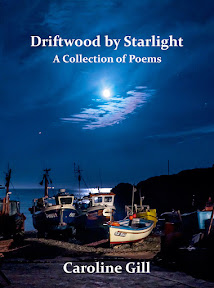In Xanadu did Kubla Khan a stately pleasure-dome decree:
where Alph, the sacred river, ran through caverns measureless to man.
Samuel Taylor Coleridge
Samuel Taylor Coleridge

Above: The Peat Moors Centre near Shapwick Heath, Somerset Levels
The Centre has now been closed down.
Below: The Somerset Levels

The Weaver of Grass is hosting a meme today on dialect words for a small river. Like others from different corners of the globe, I have left a few 'stream' words in her comments box. You may be wondering about the 'withywindles' in my title. 'Withywindle' is a word used by Tolkien for an old winding river.* The verb 'to windle' means to meander. 'Withywind' was a name for bindweed: you can begin to see the connection.
I have been thinking around the subject of dialect, and the origin of the many Welsh and Cornish place names I tend to take for granted. I have lived in Wales now for nearly two decades. I grew up in rural Norfolk, where we had some marvellous local expressions. I have spent a lot of time in Cornwall, home of my great grandmother and great aunts, where wonderful words abound. All these are watery places. I also have ancestors who hailed from Somerset, with its marshy Levels.
WALES: I will begin close to home!
South Wales has, in effect, three broad dialect-specific areas in terms of vocabulary and phonology.
The dialects in question can be referred to as Demetian (Dyfed/Pembrokeshire), Central Southern (Ceredigion and Ystrad Twyi), and Gwentian (Gwent and Morgannwg). There are many local specialities within these broad groupings. In Mumbles, for instance, (with its Upalong, Outalong and Inalong residents), we find the words 'PILL' (as in Blackpill, on the way to Mumbles from Swansea) and 'LAKE' for 'stream'. Incidentally, I have often walked to Frenchman's Pill on the Helford River in Cornwall, thinking that 'Pill' meant 'Pool', but those who read Daphne Du Maurier's novels will not be surprised to find that it can also mean 'CREEK'. I have mentioned a number of other Welsh 'stream' words in Weaver's Comments Box.
CORNWALL: since I seem to be moving in that direction!
Perhaps my favourite word here is 'ZIGHYR' or 'SIGGER' or sometimes 'SIGIJR'. The word means 'lazy', and can be used 'when a very small slow stream of water issues through a cranny underground'. (See here, and scroll down to 'Z').
NORFOLK: and the Broads (see here)
It is worth remembering that Charles Dickens had some knowledge of the Norfolk accent, since he put it to good use in the speech of the Yarmouth fishermen, Ham and Daniel Peggoty in 'David Copperfield'. I love the word, 'GRIP' (or occasionally 'GRIPPLE' or 'GRUP') for a small drain, stream, or 'BECK' (such as Suffield Beck). A 'LODE' or a 'LOOD' tends to be a constructed watercourse. To draw a 'DYKE' (like Catfield Dyke) or a 'DIKE' (like Tunstall Dike) means to clear out a ditch. Norfolk 'DYKES' are normally watercourses, though occasionally they are the high banks on either side - more in keeping with e.g. Offa's Dyke. A 'FLEET' (as in Rockland Fleet) is a channel - or occasionally more of a drain - leading from the river to a Norfolk Broad. Those majestic Norfolk Wherries would have sailed up Rockland Fleet in days gone by, bound for the staithe where I used to paddle about with oars. I have happy memories of watching the 'Albion', one of the last of these fine sailing craft. In Broadland, you also get 'SOUNDS' (e.g. Heigham Sound, sandwiched between Candle Dyke and Meadow Dyke). These are channels or stretches of water - I wouldn't class them as streams - that link the different sections of the waterways. Then there are the water 'RUNS' (e.g. Blocka Run at St Olaves) and the 'CREEKS' (e.g. Boathouse Creek near Dersingham).
SOMERSET: the Levels
I have not spent very much time on the Somerset Levels; but when the opportunity arises, I always find myself greatly enjoying this strange landscape with its peat and sedge. The word that immediately comes to mind, 'RHYNE' (e.g. Eighteen Feet Rhyne) or 'RHINE', is a drainage ditch or canal. Its purpose was to turn areas of low-lying wetland into pasture. I particularly like the area around Shapwick Heath.
* * *
So that just about completes my mini-tour of stream words. On another occasion I might have re-visited other parts of Britain that I know well. If you feel that Cornwall has not been paid much attention, well, perhaps it is because I have saved one of my favourite items until the end of this post. I wonder if you know the wonderful dialect poem, 'The Quest for the Gwidgy-gwee' by Joseph Thomas (1840-1894). You can read it here on the Old Cornwall site; and encounter perhaps for the first time, the lizamamoo and the padgypaow. You may find this Cornish dialect glossary of help. Enjoy...
... and be sure to visit Weaver's blog for a 'wordle'* of watery words. There is now a particularly good list of Welsh one on her blog here.
* My thanks to Peter Gulliver, Jeremy Marshall and Edmund Weiner for this information in their splendid book, 'The Ring of Words: Tolkien and the Oxford English Dictionary' (OUP 2006).
* Wordle











2 comments:
caroline - this is fascinating reading. i love the way words in dialect, words from the past, and tolkien's words, all carry such presence. much more than the modern currency! steven
Great blog Caroline, very interesting, and especially as I grew up in Ceredigion/Dyfed.
Post a Comment